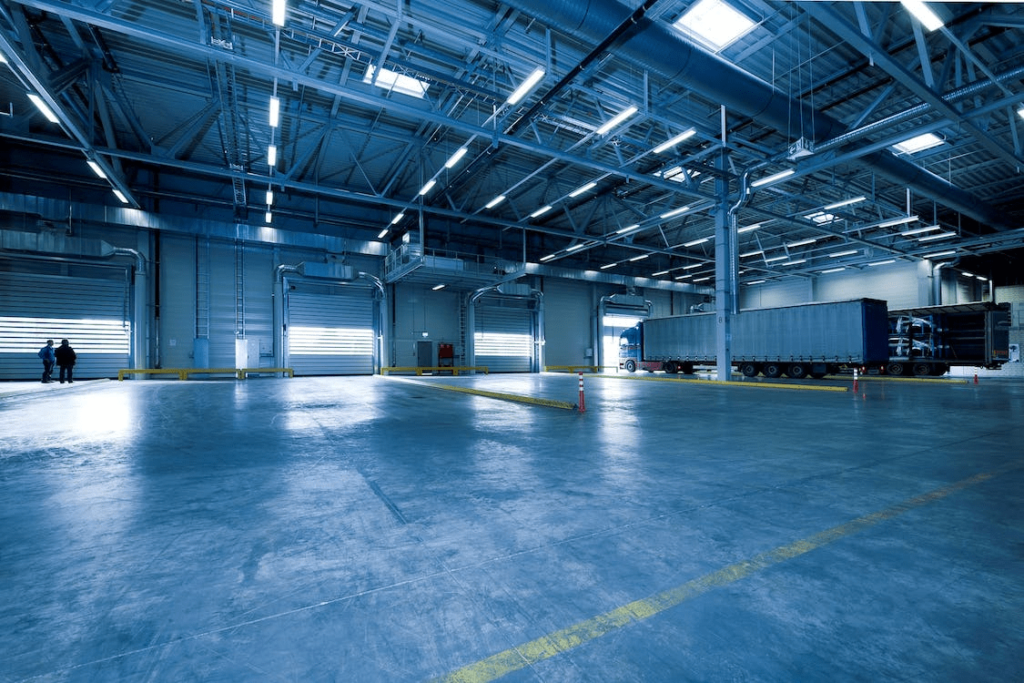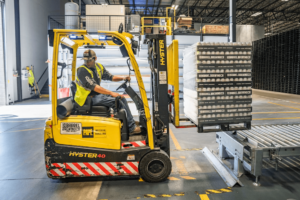Warehouse flooring significantly contributes to the functionality of the space, allowing workers to carry out day-to-day operations as efficiently as possible. So the material used for warehouse flooring must be appropriate for the type of tasks performed to prevent injuries, accidents, and, eventually, financial damage.
If you’re looking to start a warehouse business or optimize your warehouse space, read this guide by professional flooring contractors for the latest trends in warehouse flooring.
Maximizing Workflow in a Warehouse
Consider all the operations that take place on the warehouse flooring every day. Some of the most common ones include transporting and storing bulky items and operating heavy machinery. While completing a task in the facility, workers may sometimes spill chemicals on the flooring accidentally.
Weak, uneven, slipper, or porous flooring will hinder your warehouse flooring. Moreover, choosing the wrong flooring option will pose a threat to the safety of your staff, absorb harmful chemicals, develop unsightly stains, and leave a poor impression of your business on the clients.
Depending on the warehouse usage, you have several flooring options to choose from. Make sure you choose the type of flooring that’s not only cost-effective but also durable. A low-cost flooring that incurs damages quickly will cost you more in the long run as it will require frequent repairs and eventually replacement.
Some important considerations when deciding on a floor include the weight of the load carried, the amount of foot traffic in the facility, and the layout and design of the warehouse.
Trends in Warehouse Flooring
With more complex and new flooring materials introduced, warehouse flooring options have drastically evolved over the years. These materials come with better features that give your warehouse an impeccable surface and ensure the secure installation of several storage systems for heavy loads.
Polyurethane Flooring
This type of flooring is characterized by offering resistance to different temperatures, so it’s a suitable choice for cold stores or outdoor spaces. It can support very low and high temperatures without getting damaged. Some of the most important characteristics include the ability to withstand ultraviolet and solar rays and resistance to strong impacts and abrasion.
Polyurethane Cement Flooring
This flooring material is a polyurethane variant and provides more durability and firmness to the warehouse flooring. That’s because it is extremely resistant to thermal changes and strong chemicals. Polyurethane cement flooring is specially designed for warehouses dedicated to chemical, pharmaceutical, and food stores.
Polished Concrete Flooring
Most people prefer concrete flooring when it comes to choosing an affordable material for the warehouse. Despite being long-lasting and cost-effective, its porous nature may compel you to think twice about this material. Untreated concrete flooring can absorb stains from toxic chemicals. This not only makes the floor unsightly but also requires extensive cleaning methods and products.
An easy fix to the problem is choosing polished concrete. Having concrete slabs mechanically polished will create a non-porous, seamless, and slip-resistant surface, making it a suitable option for the warehouse. However, acids and harsh chemicals can still deteriorate concrete flooring, so it’s not an ideal choice for warehouse facilities frequently experiencing chemical spills.
Warehouse Epoxy Flooring
When looking for a warehouse floor, ensure it can resist chemical spills and is easy to clean. Epoxy floor coating is an ideal option for your warehouse concrete surface that is used to create seamless flooring by leveling uneven concrete slabs. Food and beverage manufacturers usually opt for this type of flooring for better durability and functionality.
Though warehouse epoxy floors may cost you a little more than you were looking to pay, they’re worth all the money in the long run. When properly maintained, these floors can last for decades in all kinds of industrial and commercial facilities.
Flooring Options You can Combine Epoxy and Concrete Flooring Systems
Epoxy floor coating and polished concrete are the most common warehouse options because of their longer lifespan and even surface. But you can find some additional options that can be combined with epoxy and concrete flooring systems for hassle-free operations and to maximize function.
Urethane Cement
Corrosion and staining are common problems in traditional concrete floors. But by mixing urethane into standard cement, the flooring can be protected from harboring bacteria and absorbing liquids. To create a heat-resistant and impermeable surface, urethane cement is often paired with epoxy coating.
Urethane Coatings
This is a more affordable option that can resist wear and tear and withstand toxic chemical spills. But it’s not an ideal choice for leveling uneven floors and covering stains. This type of coating is characterized by a thin film and a high gloss finish.
Flake and Quartz Systems
To make your warehouse facility look aesthetically pleasing, flake and quartz systems are a suitable option. That’s because they offer various color choices and the option to even add metallic or plastic flakes to give your floor a sparkling finish. This type of flooring is ideal if you want to make your warehouse flooring more presentable without compromising durability.
Hire Epoxy Flooring Contractors at Steel Coated Epoxy Floors
Epoxy floor coating requires proper installation techniques so that it can last for years. For this reason, you must partner with the right flooring contractor with years of experience in the field.
Steel Coated Epoxy Floors is a flooring service in Las Vegas that specializes in both residential and commercial coatings and offers various floor coating options. Besides offering warehouse epoxy flooring installation services, we also deal in garage floor coating, steel-coated floors, epoxy floor coatings, and industrial epoxy floor coating.
Reach out to us today to request a quote for your warehouse transformation project.





